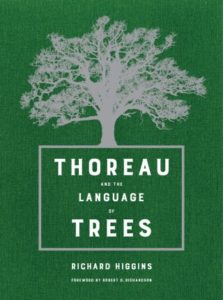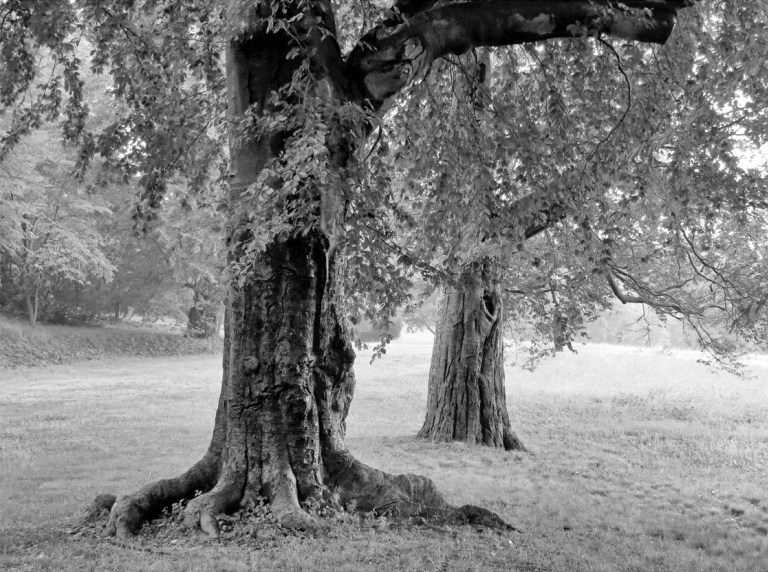Thoreau on Nature as Prayer
INSPIRATIONAL, 24 Dec 2018
Maria Popova | Brain Pickings – TRANSCEND Media Service
“In the street and in society I am almost invariably cheap and dissipated, my life is unspeakably mean.”
 Walt Whitman saw trees — “so innocent and harmless, yet so savage” — as a wellspring of wisdom on being rather than seeming. “When we have learned how to listen to trees,” Hermann Hesse exulted in his love letter to our arboreal companions, “then the brevity and the quickness and the childlike hastiness of our thoughts achieve an incomparable joy.”
Walt Whitman saw trees — “so innocent and harmless, yet so savage” — as a wellspring of wisdom on being rather than seeming. “When we have learned how to listen to trees,” Hermann Hesse exulted in his love letter to our arboreal companions, “then the brevity and the quickness and the childlike hastiness of our thoughts achieve an incomparable joy.”
Two generations earlier, another poet laureate of nature and the human spirit made trees a centerpiece of his emotional universe. For Henry David Thoreau (July 12, 1817–May 6, 1862), they were creative and spiritual companions, sane-making and essential. His love of them comes alive in Thoreau and the Language of Trees (public library) — a selection of the great Transcendentalist poet and philosopher’s meditations on trees, drawn from his two-million-word journal by writer and photographer Richard Higgins, whose beautiful black-and-white photographs complement Thoreau’s arboreal writings.
Thoreau reverenced trees as living incantations, wordless prayers, benedictions for the art of being. In their company, he found a counterpoint to the falsehoods of society. Fifteen years after his mentor Emerson lamented in his own journal that “in cities… one seems to lose all substance, & become surface in a world of surfaces,” Thoreau redoubles his insistence on defining one’s own success and writes in a diary entry from January of 1857:
In the street and in society I am almost invariably cheap and dissipated, my life is unspeakably mean. No amount of gold or respectability would in the least redeem it — dining with the Governor or a member of Congress!! But alone in distant woods or fields, in unpretending sprout lands or pastures tracked by rabbits, even on a black and, to most, cheerless day, like this, when a villager would be thinking of his inn, I come to myself, I once more feel myself grandly related, and that the cold and solitude are friends of mine. I suppose that this value, in my case, is equivalent to what others get by churchgoing and prayer. I come to my solitary woodland walk as the homesick go home… It is as if I always met in those places some grand, serene, immortal, infinitely encouraging, though invisible, companion, and walked with him.
Four decades later, Whitman — who was two years younger than Thoreau but long outlived him — would record a kindred sentiment in his own notebook:
“After you have exhausted what there is in business, politics, conviviality, love, and so on — have found that none of these finally satisfy, or permanently wear — what remains? Nature remains; to bring out from their torpid recesses, the affinities of a man or woman with the open air, the trees, fields, the changes of seasons — the sun by day and the stars of heaven by night.”
Complement the thoroughly elevating Thoreau and the Language of Trees with Rachel Carson on our scientific and spiritual bond with nature and David George Haskell on what a dozen of the world’s most interesting trees taught him about life, then revisit Thoreau on the spiritual rewards of walking, knowing vs. seeing, the difference between an artisan, an artist, and a genius, and how to use civil disobedience to advance justice.
_______________________________________
 Brain Pickings is the brain child of Maria Popova, an interestingness hunter-gatherer and curious mind at large obsessed with combinatorial creativity who also writes for Wired UK and The Atlantic, among others, and is an MIT Futures of Entertainment Fellow. She has gotten occasional help from a handful of guest contributors.
Brain Pickings is the brain child of Maria Popova, an interestingness hunter-gatherer and curious mind at large obsessed with combinatorial creativity who also writes for Wired UK and The Atlantic, among others, and is an MIT Futures of Entertainment Fellow. She has gotten occasional help from a handful of guest contributors.
Go to Original – brainpickings.org
DISCLAIMER: The statements, views and opinions expressed in pieces republished here are solely those of the authors and do not necessarily represent those of TMS. In accordance with title 17 U.S.C. section 107, this material is distributed without profit to those who have expressed a prior interest in receiving the included information for research and educational purposes. TMS has no affiliation whatsoever with the originator of this article nor is TMS endorsed or sponsored by the originator. “GO TO ORIGINAL” links are provided as a convenience to our readers and allow for verification of authenticity. However, as originating pages are often updated by their originating host sites, the versions posted may not match the versions our readers view when clicking the “GO TO ORIGINAL” links. This site contains copyrighted material the use of which has not always been specifically authorized by the copyright owner. We are making such material available in our efforts to advance understanding of environmental, political, human rights, economic, democracy, scientific, and social justice issues, etc. We believe this constitutes a ‘fair use’ of any such copyrighted material as provided for in section 107 of the US Copyright Law. In accordance with Title 17 U.S.C. Section 107, the material on this site is distributed without profit to those who have expressed a prior interest in receiving the included information for research and educational purposes. For more information go to: http://www.law.cornell.edu/uscode/17/107.shtml. If you wish to use copyrighted material from this site for purposes of your own that go beyond ‘fair use’, you must obtain permission from the copyright owner.
